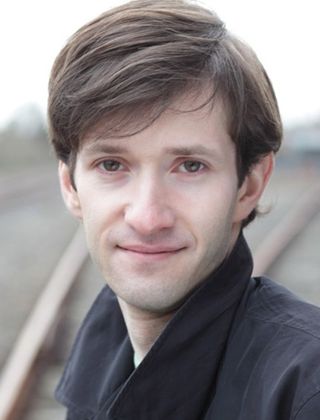Mikhael Ovrutsky

Chamber Music Connects the World, junior
Mit Musik – Miteinander, tutor
With his “extraordinary talent” (Süddeutsche Zeitung), his stupendous technique and profundity, not to mention his “glowing violin tone” (KulturSPIEGEL), Mikhail Ovrutsky is one of the most outstanding violinists of today.
Born into a family of musicians in Moscow in 1980, Mikhail Ovrutsky began violin lessons at the age of only five at a school for musically highly gifted children. At eleven he moved to America with his family, where he first studied at the Manhattan School of Music and later received tuition from Dorothy DeLay at the New York Juilliard School. Crucial in his development was his meeting with Zakhar Bron, who accepted him into his class at the age of 17. After that he passed his diploma and concert exams (both “with distinction”) at the Cologne Musikhochschule and was subsequently named assistant to Professor Bron.
Mikhail Ovrutsky has won an astonishing number of prizes in international competitions, including the Tchaikovsky Competition in Moscow, the Pablo de Sarasate Competition and the International Liana Issakadze Competition in St. Petersburg. A turning point for Ovrutsky came in 2005 with his success in the renowned Queen Elisabeth Competition in Brussels, which resulted in numerous engagements with major orchestras and conductors.
In the meantime he has also worked as a soloist with the Philadelphia Orchestra, the London Symphony Orchestra, the Filarmonica della Scala, the BBC Philharmonic, the WDR Symphony Orchestra, the Helsinki Philharmonic, the Russian Symphony Orchestra, the Vienna Symphony Orchestra, the Mariinsky Theatre Orchestra in St. Petersburg, the Lucerne Symphony Orchestra, the Orchestre Philharmonique de Radio France, the Moscow Chamber Orchestra, the Barcelona Symphony Orchestra, the Bonn Beethoven Orchestra, the Royal Flemish Philharmonic and many others. He has been invited to work with famous conductors including Fabio Luisi, Semyon Bychkov, Valery Gergiev, Vladimir Fedoseyev, Pietari Inkinen, Andrés Orozco-Estrada, Dmitri Kitaenko, Leif Segerstam, and Roman Kofman.
His numerous meetings with Anne-Sophie Mutter were significant for Ovrutsky on an artistic as well as on a personal level. She accepted him into her foundation for young and highly talented soloists in 2004. In addition she nominated him in 2006 for the European award from the “Pro Europa” Foundation “on the basis of his great artistic talent and his outstanding achievements”. As a scholar of the Anne-Sophie Mutter Foundation he regularly gave performances with her; these included Bach’s Double, in which he was acclaimed by audiences and recognised in specialist publications as “a like-minded partner” (Münchner Merkur).
The multifaceted violinist devotes himself especially to the Romantic and Late Romantic repertoire (e.g. Violin Concerti by Mendelssohn, Brahms, Elgar or Sibelius) as well as Russian works including concerti by Shostakovich, Tchaikovsky and Stravinsky. Yet his broad repertoire also encompasses works by Berg, Rihm, Britten, Bernstein, Schönberg, Debussy, Franck, de Falla, and many more.
Alongside his solo engagements Mikhail Ovrutsky can also regularly be heard performing as a chamber musician in famous festivals and important concert halls, for instance at Lockenhaus, the Lucerne Festival, the Bonn Beethovenfest, in the Vienna Konzerthaus or the Mozarteum in Salzburg. He has performed with David Geringas, Christian Zacharias, Jan Vogler, and with his sister Sonya Ovrutsky amongst others. As part of the Kronberg Academy project “Chamber Music Connects the World” he also gave concerts with Yuri Bashmet and Menahem Pressler.
Mikhail Ovrutsky has released various CD recordings with Warner Classics, Naxos and BerlinClassics. His recording of Joaquin Rodrigo’s Violin Concerto was acclaimed as “exceptional” in Strad Magazine, and his CD with his sister, the pianist Sonya Ovrutsky, earned outstanding reviews and was selected as “CD of the Week” by rbb kulturradio.
Mikhail Ovrutsky plays a violin made by Gioffredo Cappa in Turin, c. 1700.
